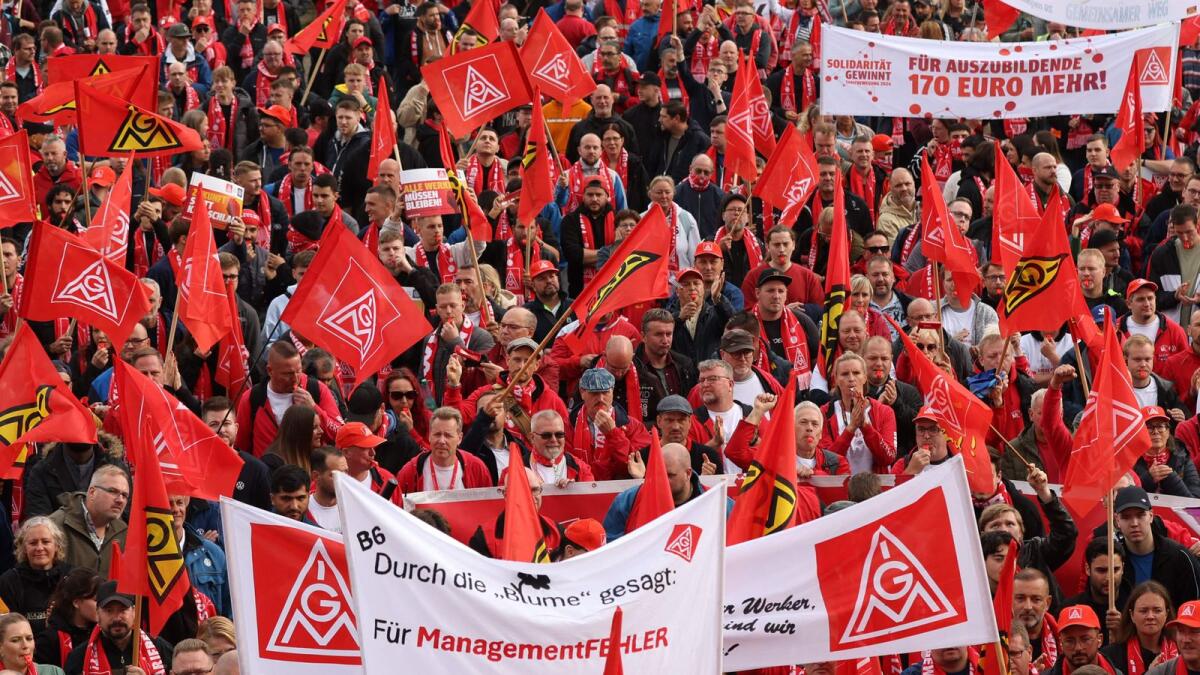The German auto giant Volkswagen is currently facing a crisis, as the company considers closing factories in Germany and implementing deep job cuts. This has led to tensions between the management and the workers’ representatives, who accuse VW’s corporate leaders of prioritizing profits over the long-term sustainability of the manufacturer. The situation has also put pressure on Chancellor Olaf Scholz’s government amid ongoing economic challenges in the country.
The initial talks between Volkswagen bosses and workers’ representatives have been met with resistance, with union leaders vowing to fight against any attempts to implement drastic cost-cutting measures. The lead negotiator for the union IG Metall criticized the management for their approach and emphasized the importance of job security for the employees. The powerful works council at VW also reiterated the significance of balancing profitability with ensuring job stability within the company.
Volkswagen’s financial struggles can be attributed to various factors, including high manufacturing costs, difficulties in transitioning to electric vehicles, and increased competition in key markets like China. Negotiations between the management and workers are crucial in defining the future of the company and determining the terms of employment for around 120,000 workers in Germany. The outcome of these discussions will have far-reaching implications for the entire Volkswagen Group, which includes popular brands like Porsche, Audi, and Skoda.
The union representatives and workers are determined to push back against any attempts by the management to implement drastic cost-cutting measures that could impact job security and livelihoods. They are calling for a collaborative approach that prioritizes the well-being of the employees while also ensuring the long-term competitiveness of the company. The current talks are focused on assessing the initial situation and finding common ground to address the challenges facing Volkswagen and its workforce.
The economic challenges facing Volkswagen are significant, and the company is under pressure to take decisive action to remain competitive in the global market. The negotiations between the management and the workers will play a crucial role in determining the future direction of the company and shaping its response to the evolving automotive industry landscape. With both sides acknowledging the seriousness of the situation, finding a balance between profitability and job security will be essential in securing a sustainable future for Volkswagen and its employees.











